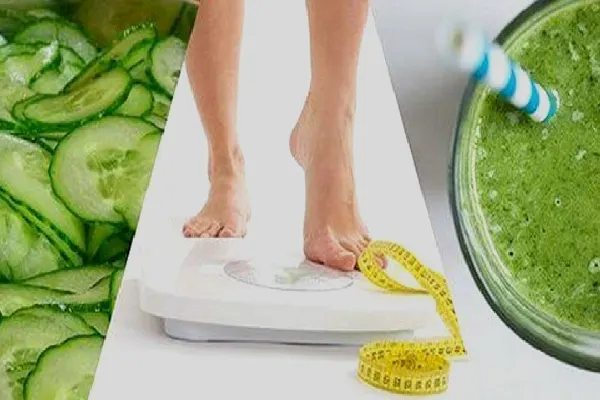Does a liquid diet shrink the stomach?
Weight loss and fat loss are two separate issues. Liquid diets may result in losing general weight temporarily although they do not necessarily reduce stomach fat since these diets are mostly devoid of essential nutrients and put the body in “starvation” mode. This issue slows the metabolism and preserves fat storage.
Additionally, the weight lost on liquid diets is quickly regained upon returning to a normal diet.
There are various types of liquid diets, in which meals are replaced with liquids. Some of these diets are advertised for rapid weight loss, while some others are used to detoxify or cleanse the body.
But are these diets really useful for health and weight loss?
The present article seeks to evaluate different liquid diets, and their potential pros and cons, as well as how they work.
The scientific reasons behind full liquid diets:
- Liquid food-caused fullness: Some researchers have found that liquid food activates satiety signals in the brain faster and causes an individual to feel full sooner. This issue is related to the quick separation of food and liquids in the stomach, leading to the faster shrinkage of stomach, as well as earlier satiety signaling to the brain.
- Calorie-intake restriction: These diets usually limit calorie intake to 800-1200 calories per day, which is associated with a significant calorie deficit and in turn contributes to weight loss.
- Behavioral support: During these diets, weekly counseling sessions are held to help individuals manage eating behaviors, create healthy habits, and prevent weight regain.
Cons of full liquid diets:
- Cost: These diets may be expensive because of including meal replacements and counseling sessions.
- Dietary restrictions: Individuals have to replace all their meals with liquid replacements, which can be challenging.
- Sustainability: A low weight can be difficult to maintain for a long time, especially without constant support.

It is worth noting that:
- Full liquid diets are suitable for the obese individuals (BMI > 30) who are looking for rapid weight loss.
- However, the diets may be inappropriate for those with certain health conditions.
- You should consult a doctor before starting a weight-loss program.
- Adhering to a meal replacement diet and creating healthy eating habits in long term can be challenging.
Types of liquid diets:
- Meal replacement: In these diets, shakes or powders, usually low in calories and nutrients, replace one or more meals a day.
- Detoxification and cleansing: These diets, claimed to remove toxins from the body, involve consuming only fruit juices, tea, or specific liquids for a few days or weeks.
- Medically-prescribed liquid: These diets are prescribed by medical professionals for specific purposes such as pre- or post-surgery.
Related content: Is there a way to shrink the stomach without surgery?
Highlighting points:
Weight loss:
Some studies have reported significant weight loss in short term among the individuals adhering to meal replacement liquid diets. This outcome is attributed to calorie-intake restriction.
However, these diets are rarely a sustainable solution for weight loss. Many individuals regain their lost weight once returning to a normal diet. Further, meal replacement liquid diets may not provide all the nutrients necessary for the body and be associated with side effects such as fatigue, irritability, and constipation.
Detoxification and cleansing:
There is no scientific evidence on the usefulness of detoxification or cleansing diets for health. In fact, these diets may be dangerous. They may lead to dehydration, malnutrition, electrolyte imbalances, and drug interactions.
Medically-prescribed liquid diets:
These diets are designed for specific conditions and supervised by a doctor. They are usually only followed for a short time.
Who may follow this diet?
- Individuals having difficulty swallowing or chewing
- Individuals recovering from gastrointestinal injury or surgery
- Individuals suffering from gastrointestinal problems such as gastroparesis or intestinal stricture

Pros of this diet:
- Giving rest to the digestive system·
- Assisting in getting the required calories and nutrients·
- Helping to prevent dehydration
Possible side effects:
- Constipation
- Diarrhea
- Fatigue
- Irritability
- Weight loss
Compliant foods:
- Fruit juice (without pulp)
- Broth
- Non-alcoholic drinks
- Sports drinks
- Coffee and tea
- Milk and its substitutes (e.g., soy or almond milk)
- Milkshake, malt, and smoothies
- Watery soups (thinned, strained, without solid ingredients)
- Honey, syrup, and sugar
- Gelatin, pudding, and custard
- Ice cream, frozen yogurt, and ice pops (without nuts, candy, or hard coatings)
- Regular or Greek yogurt (without granola, seeds, or fruit)
- Soft cheese
- Powdered protein, dry milk, and other nutritional supplements

Non-compliant foods:
- Meat (unless pureed, thinned, and strained)
- Meat substitutes
- Nuts and seeds
- Raw fruits and vegetables
- Hard cheese
- Soft or pureed food (e.g., potatoes)
- Soups or stews with noodles, meat, or vegetables
- Bread
- Whole pasta or rice
- Cereals, granola, and oats
- Potato chips, crackers, pretzel pete, and popcorn
- Cakes, cookies, and pastries
- Hard or chewy candy
- And all the other solid foods not approved by your nutritionist
How long should you follow this diet?
This diet is usually performed for only a few days to two weeks although your nutritionist may prescribe the diet for a longer time.
Conclusion:
A combination of full liquid diets and counseling support can be an effective and safe way of weight loss for obese individuals. Before starting any new weight loss program, you should be aware of its pros and cons and consult with your doctor.

